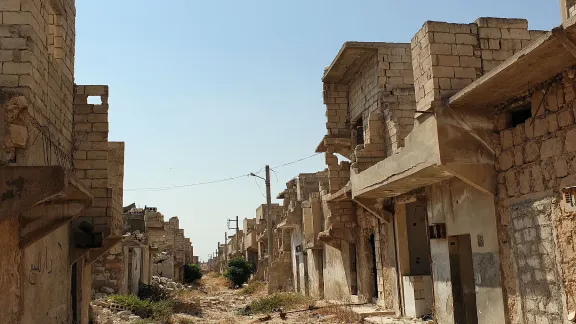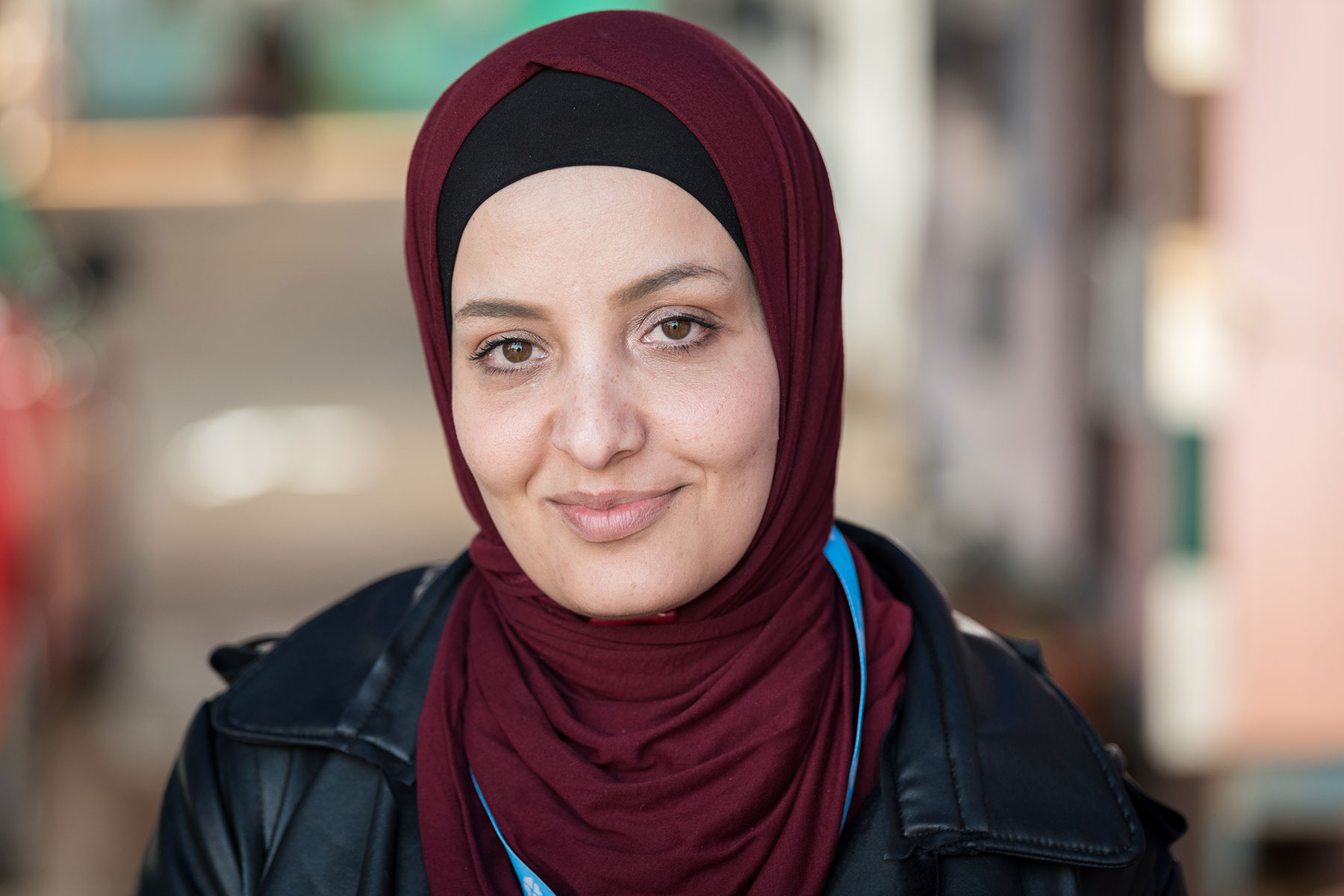
The LWF is adding its voice to a statement calling for an end to the decade-long conflict in Syria and support for all those displaced by the violence Photo: LWF/R. Schlott
4th Brussels Conference will highlight ongoing humanitarian crisis in Syria and neighboring countries
(LWI) - The Lutheran World Federation (LWF) has signed onto a statement from the Action by Churches Together (ACT) Alliance on behalf of its members in Syria and the surrounding countries. The statement is calling for a “transformative conference” to support just peace, end violence, engage in meaningful partnerships with civil society and provide multi-year, flexible funding to support victims of the conflict in Syria and the neighboring countries.
The ACT Alliance has issued the statement to coincide with the 4th Brussels Conference, co-chaired by the United Nations (UN) and the European Union, on ‘Supporting the future of Syria and the region’. The meeting on 30 June will take place online due to the COVID-19 restrictions.
Conference organizers stress that the situation in Syria and the surrounding region remains “highly critical” as the conflict enters its 10th year. Millions of Syrians, who have been internally displaced by the fighting or have fled to neighboring countries, are facing dire humanitarian conditions, which are further compounded by the consequences of the COVID-19 pandemic.
The conference aims to gather all relevant partners to support UN efforts for a political solution to the conflict and mobilize the necessary financial support, as well as to promote dialogue with civil society actors in the region. It will highlight the importance of solidarity shown by host countries including Lebanon, Jordan, Turkey, Egypt and Iraq and underline the challenges they face in the medium and long term in providing for refugee populations.
LWF Jordan in Za’atari Camp
The LWF has been working with Syrian refugees in Jordan since 2012, providing assistance to more than a quarter of a million vulnerable people. In Za’atari Camp, the largest camp in the region for Syrian refugees, the LWF runs a Peace Oasis providing a safe space for families to gather and find both practical and psychological support. In 2019, LWF also opened a day care facility for young children called the ‘Smurf Center’, offering an opportunity for parents, in particular mothers, to attend skills training or work, in and outside the camp.
For the past eight years, LWF Area Manager Islam Asmet Al-Shdaifat has been working in Za’atari, accompanying refugees as they attempt to rebuild their lives in precarious conditions. She is proud of LWF’s participatory approach in planning and implementing activities, which support more than 6,000 refugees through the Peace Oasis and an additional 600 at the Smurf Center.

Islam Asmet Al-Shdaifat, LWF Area Manager in Za’atari Camp
“It is important to note that the activities carried out by LWF are not all fixed,” Al-Shdaifat says. “We change them, always depending on the need. Before we launch any activity, we sit down and talk to the community, in focus groups, to hear about their needs and their hopes. This happens even with the kids.” Activities range from support for home-based businesses and innovation labs, through awareness raising about protection and caregiving, to sports, music, sewing and Zumba dance classes.
Al-Shdaifat, who also manages an LWF community center in Zarqa, northeast of the capital Amman, notes that a decade on from the start of the Syrian conflict, conditions at Za’atari remain extremely challenging. “The camp is a congested area with people living close to each other. You see in the winter, everything here is muddy. In the summer, there is the problem of electricity,” she says.
There is still so much need for support, to provide income-generating activities.
“There is still so much need for support, to develop income-generating activities,” she notes, for Syrians living within and outside the camps. The ACT Alliance statement points out that both refugees and host communities in all the neighboring countries face increased food insecurity and tensions over the decline in employment opportunities due to COVID-19 restrictions. An increase in gender-based violence and disruption of education for many children during the lockdown are further causes for concern highlighted in the statement.
As well as calling for a cessation of hostilities and unhindered access for humanitarian aid, the statement calls on all parties to the conference to include local faith groups and civil society organizations in order to safeguard Syria’s tradition of religious pluralism and build strong social cohesion. Within Syria itself, LWF works through the Catholic aid and development group, Caritas Syria, part of the Caritas Internationalis network, to provide food and other emergency supplies.
ACT Alliance notes that the burden of the Syrian refugee crisis remains on the shoulders of Syria’s neighbors, with 87 percent of its refugee and asylum seeker population located in Turkey and the Middle East/North Africa region. Just 11.6 percent of people displaced by the Syrian conflict has found refuge in European countries.
With input from Albin Hillert


